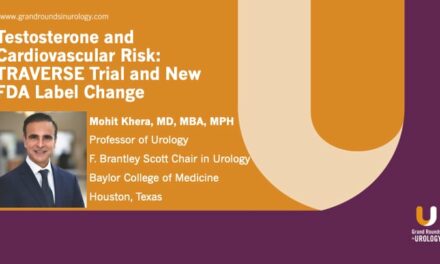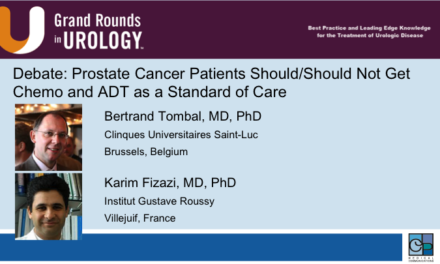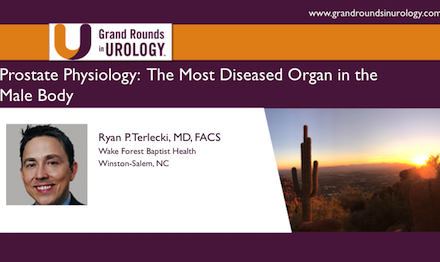How to cite: Miner, Martin M. “Male Mortality Testosterone & Lean BM Preservation: Prevention of Sarcopenia & Frailty.” October 2025. Accessed Nov 2025. https://grandroundsinurology.com/male-mortality-testosterone-lean-bm-preservation-prevention-of-sarcopenia-frailty/
Martin M. Miner, MD, Warren Alpert Medical School of Brown University, Providence, Rhode Island, explores the expanding role of glucagon-like peptide-1 (GLP-1) receptor agonists in men’s health, including their effects on cardiometabolic disease, obesity, erectile dysfunction, infertility, and testosterone deficiency.
Dr. Miner emphasizes that men continue to experience higher mortality and reduced life expectancy compared to women. He notes that obesity and associated conditions—including diabetes, hypertension, and cardiovascular disease—are key contributors to early male mortality. GLP-1 receptor agonists have emerged as effective agents for weight loss and cardiometabolic improvement, with benefits extending to male reproductive health.
Dr. Miner details the mechanisms of GLP-1 receptor agonists. Agents such as liraglutide, semaglutide, dulaglutide, and tirzepatide are shown to reduce cardiovascular events, renal disease, and mortality in addition to their weight-loss benefits. Clinical trials demonstrate average body weight reductions of 15 to 21 percent, with GLP-1 therapies improving sperm motility, testosterone levels, and erectile function, suggesting utility for obese and diabetic men with infertility or hypogonadism.
However, Dr. Miner cautions that GLP-1 use may lead to lean body mass loss and sarcopenia if patients do not maintain adequate protein intake and resistance training. He stresses the importance of individualized management, monitoring muscle mass, and potentially combining GLP-1 therapy with testosterone replacement in selected men to preserve muscle and optimize metabolic and reproductive outcomes.
Dr. Miner argues that obesity is the most modifiable risk factor for male longevity and that GLP-1 receptor agonists, when coupled with lifestyle measures and possibly testosterone therapy, may help men improve survival, maintain function, and reduce risks of erectile dysfunction and infertility.
ABOUT THE AUTHOR
Martin M. Miner, MD, is founder and internist at the Lifespan Men’s Health Center and former chair of the Department of Family Medicine for Miriam Hospital in Providence, Rhode Island. He is also a clinical professor of family medicine and urology at the Warren Alpert Medical School of Brown University in Providence. Dr. Miner earned his MD at the University of Cincinnati College of Medicine in Ohio. He completed his residency at Brown University and spent time working with the Indian Health Service Corps and the Public Health Service. Dr. Miner presently holds memberships in the American Academy of Family Physicians, the Rhode Island and Massachusetts Academy of Family Physicians, and the American Urological Association (AUA), and is a Fellow of the Sexual Medicine Society of North America. He is president-elect of the Androgen Society and has participated as a member of the AUA in the development of guidelines for erectile dysfunction, Peyronie's disease, testosterone deficiency, and early screening for prostate cancer. He is the former president of the American Society of Men’s Health. Dr. Miner has published extensively in the areas of erectile dysfunction and cardiovascular disease, benign prostatic hyperplasia, and lower urinary tract symptoms, as well as male sexuality and hormone replacement therapy in men.





